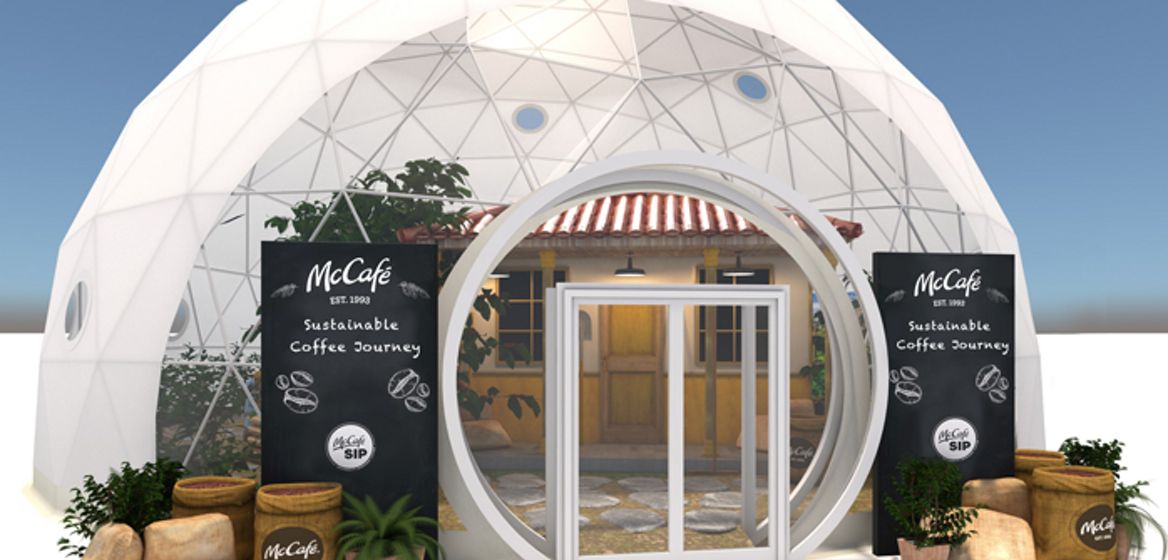Our Sustainable Coffee Story: How McDonald’s is Working to Protect Coffee from the Impact of Climate Change
November 29, 2018
The coffee crop is highly vulnerable to rising temperatures. In fact, one study showed that climate change has the potential to cut the world’s coffee-growing area in half by 2050. That’s why, in 2014, we made a commitment that our coffee would deliver more than a fresh-brewed start to the morning – our goal is to source 100% of our ground and whole bean coffee sustainably by 2020, with some markets having already reached that goal. This includes espresso based drinks and coffee brewed at restaurants and all coffee retail products.
Today, we’re thrilled to announce a major progress milestone, with 84 percent of McCafé coffee for U.S. restaurants being derived from sustainable sources – and 54 percent of all McCafé coffee worldwide – as part of our efforts to protect coffee from the adverse effects of climate change.
“We know many people enjoy coffee as part of their daily routine, and, at McDonald’s, we are taking meaningful steps to support farmers protecting it from climate change,” said Townsend Bailey, McDonald’s Director of U.S. Supply Chain Sustainability. “As we continue on our journey to build a better McDonald’s, we are using our size and scale to implement significant changes that are important to our customers, our people and the environment.”
While we’re proud to make this progress announcement as we get closer to our goal, we also want to highlight the people and partners who play a critical part in helping McDonald’s ensure coffee has a bright and sustainable future.
With help from partner organizations – like Rainforest Alliance, Conservation International, Solidaridad, COSA and Fair Trade International – we’ve been able to equip farmers with the tools they need to protect their coffee crops from climate change. Through the McCafé Sustainability Improvement Platform (SIP) program, McDonald’s, in partnership with Conservation International, provides the framework to help guide the coffee supply chain in sustainable sourcing and invest in coffee growers and their communities over the long term.
McDonald’s is also part of Conservation International’s Sustainable Coffee Challenge, which aims to make coffee the world’s first sustainable agricultural product. Together with key industry players, McDonald’s is helping make the changes needed to transform the industry.
McDonald’s USA is proud to work with US dairy farmers to source its McCafé dairy needs. By 2020, nearly all dairy products served in the U.S. will come from farms that participate in the Farmers Assuring Responsible Management (FARM) Program, which strives to hold its members to high standards of animal care, and environmental and antibiotic stewardship.
The McCafé Sustainable Coffee Journey
On Thursday, November 29, McDonald’s is replicating a South American coffee farm in its hometown of Chicago: the McCafé Sustainable Coffee Journey. From interacting with coffee farmers to enjoying a complimentary McCafé beverage under real coffee trees, consumers will get a firsthand look at the source of their daily brew and experience how McDonald’s is helping protect it from climate change. The event is free and open to the public from 5 a.m. to 3 p.m. CDT, at Pioneer Court (401 N. Michigan Ave.) in downtown Chicago.
About McDonald’s
McDonald’s USA, LLC, serves a variety of menu options made with quality ingredients to nearly 25 million customers every day. Ninety-five percent of McDonald’s 14,000 U.S. restaurants are independently owned and operated by businessmen and women. For more information, visit www.mcdonalds.com, or follow us on Twitter @McDonalds and Facebook www.facebook.com/mcdonalds.

